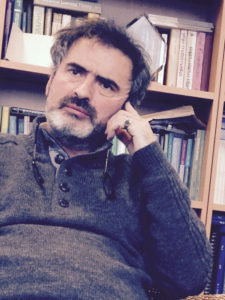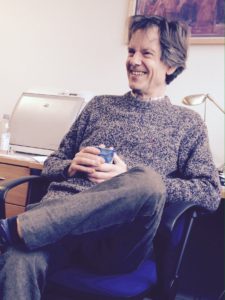 The project will contribute to Open Educational Resources in a twofold manner, firstly as a means of creation of innovative practices in driving forward the use of ICTs for OER-supported teaching and learning, online based education by using VideoLectures.Net, K4All, Opencast and OCWC, and secondly by applying methods in the realm of “big data” to analyse emerging trends in learning outcomes, in the creation, and dissemination in the field of OERs by means of AI techniques.
The project will contribute to Open Educational Resources in a twofold manner, firstly as a means of creation of innovative practices in driving forward the use of ICTs for OER-supported teaching and learning, online based education by using VideoLectures.Net, K4All, Opencast and OCWC, and secondly by applying methods in the realm of “big data” to analyse emerging trends in learning outcomes, in the creation, and dissemination in the field of OERs by means of AI techniques.
The project focuses on OERs at national/regional and global level in line with the set objectives. The project will offer AI technologies, evidence and guidance for OER research methods ranging from research, use cases, deployment, exploration, exploitation and operability, whereas this may apply to all educational sectors.
This will be done based on implementation, impact and creation analysis of OER initiatives pursued by other UNESCO OER Chairs. This project will create an OER research agenda and technology roadmap.
The Chair is Mitja Jermol who is also a trustee of the Knowledge for All Foundationis and head of the Centre for knowledge Transfer at JSI working in the area of e‐learning and dissemination and promotion of research results.
The highlights, activities and outputs of the UNESCO Chair on Open Technologies for Open Educational Resources and Open Learning at the Jožef Stefan Institute (Slovenia) during its first 4 years of formal activities (November 2014 – November 2018) are listed below as major accomplishments.
Relevant major research results:
- Strategic projects 2014-2018: transLectures[1], MediaMixer[2], Xlike[3], Xlime[4], TraMOOC[5], MOVING[6]
- Strategic projects 2018-2022 funded by the Government of Slovenia and European Commission: X5GON[7], CLEOPATRA[8], CogLo[9], DataBench[10], TheyBuyForYou[11], MicroHE[12]
- Addition of 5000 new OER based academic videos on VideoLectures.Net, a WSA 2009 and 2013 award winning video library currently including content from 1105 events, 15617 authors, 21269 lectures (some 24658 videos in total).
Relevant major capacity building results:
- 2nd World Open Educational Resources (OER) in Ljubljana, Slovenia, on 18–20 September 2017, co-organized by UNESCO and the Government of Slovenia. This event marked five years since the World OER Congress was held in Paris in June 2012. Organized by UNESCO and the Slovenian Ministry of Education, Science and Sport in close collaboration with the Commonwealth of Learning, Creative Commons, the Slovenian National Commission for UNESCO and the Chair with the generous support of The William and Flora Hewlett Foundation.
- 21 satellite events at the Congress facilitated and co-funded by the Chair
- The Chair organized in synergy with numerous partners a series of 20+ events in relevance to UNESCO’s strategic objectives, covering core UNESCO actions.
Relevant major educational result:
- Open Education for a Better World is a half-year on-line mentoring program in which students from very different backgrounds and different parts of the world developed 14 OER projects aligned with the UN SDG agenda.
Relevant major policy results:
- The Ljubljana OER Action Plan: The plan presents 41 recommended actions to mainstream open-licensed resources to help all Member States to build Knowledge Societies and achieve the 2030 Sustainable Development Goal 4 on “quality and lifelong education.”
- The Ministerial Statement: The statement is endorsed by 20 Ministers and their designated representatives of Bangladesh, Barbados, Bulgaria, Czech Republic, Costa Rica, Croatia, Kiribati, Lao People’s Democratic Republic, Lithuania, Malta, Mauritius, Mauritania, Mozambique, Palestine, Romania, Serbia, Slovakia, Slovenia, South Africa and the United Arab Emirates.
- The Dynamic Coalition on OER: Formation of a Dynamic Coalition of National Governments in OER and Open Education to propose, construct and operate a dynamic coalition of countries devoted to research, develop, deploy and exchange OER and Open Education solutions, practices and policies.
- The Slovenian Case in OER – From Commitment to Action: National policy document is now in a website format intended to showcase other governments at the Congress how Slovenia is coping with the idea of opening up education. We have identified 5 major areas across all fields of education.
Relevant major technological result:
- Global Infrastructure for OER promises to deliver the first building blocks for an open and artificial intelligence powered infrastructure to easily connect all global OER sites/siloses and provide a digestion pipeline for understanding content including by th use of machine translation, reasoning, recommendation, automatic curation, personalisation and aggregation of OER. It will result in providing technology services benefiting teachers, learners, researchers, policy makers and technologists.
Upcoming relevant results:
- UNESCO Recommendation on Open Educational Resources (OER), leading the draft text formulation further to the adoption of Resolution 44 ‘Desirability of a standard-setting instrument on international collaboration in the field of Open Educational Resources (OER)’ at the 39th Session of the UNESCO General Conference
- Setting up the Category 2 Centre on Artificial Intelligence Under the Auspices of UNESCO
[1] transLectures FP7 ICT Project – FP7-ICT-287755-STREP – Language technologies – website : http://translectures.eu/
[2] MediaMixer FP7 ICT Project – FP7-ICT-318101-CSA- Intelligent Information Management website : http://mediamixer.eu/
[3] Xlike FP7 ICT Project – FP7 -ICT-288342- STREP – Cross Lingual Knowledge Extraction (2012-2014) http://www.xlike.org/
[4] Xlime FP7 ICT Project – STREP, FP7-ICT-2013-10 – crossLingual crossMedia knowledge extraction (2014-2017)
[5] TraMOOC H2020 Project – Innovation Action, Translation for Massive Open Online Courses (2014-2018) http://tramooc.eu/
[6] MOVING H2020 Project – INSO-4-2015 – Training towards a society of data-savvy information professionals to enable open leadership innovation, http://moving-project.eu
[7] X5gon H2020 Project – ICT-19-2017 – X5GON: Cross Modal, Cross Cultural, Cross Lingual, Cross Domain, and Cross Site Global OER Network, http://x5gon.org/
[8] CLEOPATRA – H2020-MSCA-ITN-2018 – Cross-lingual Event-centric Open Analytics Research Academy
[9] CogLo – Future COGnitive Logistics Operations through Social Internet of Things
[10] DataBench – Evidence Based Big Data Benchmarking to Improve Business Performance
[11] TheyBuyForYou – Enabling procurement data value chains for economic development, demand management, competitive markets and vendor intelligence
[12] MicroHE – Support Future Learning Excellence through Micro-Credentialing in Higher Education, Erasmus+, EACEA/41/2016 – Forward-Looking Cooperation Projects
The Chair is based on the Institute Jozef Stefan which is a research rather than an educational institution, so in terms of education, no traditional certificates were provided. However, it does deliver training programme on three levels:
- Course in Open Education Design for practitioners in partnership with the University in Nova Gorica. Designed as a 5-day course, the participants become familiar with open education design processes, methods and tools in OER and based on the Open Education for a Better World mentoring programme delivering OER projects across the world.
- Via the MicroHE – Support Future Learning Excellence through Micro-Credentialing in Higher Education which specific objective is to examine the scope for and impact of micro-credentials – a form of short-cycle tertiary qualification – in Higher Education and deliver these certificates over a blockchain solution for open and online learning via the educational repository Vidoelectures.Net.
- Open Education for a Better World is a tuition-free international online mentoring programme launced by the Chair and University of Nova Gorica, to unlock the potential of open education in achieving the UN’s Sustainable Development Goals (SDG). It’s a half year-long mentoring programme for students from all backgrounds, regions and continents with the potential and desire to employ Open Educational Resources to solve large scale and relevant problems important in relation to today’s global landscape. The programme with over 40 mentors takes place over half a calendar year, starting from January, through to July 2018. All mentoring sessions and events take place online and comprise of one final end-of-year, that is designed to help students finalise their work. OE4BW mentees will be expected to attend the final event.
There are currently 14 projects that are part of the first batch of the Programme, which students and mentors are actively finalising:
- Control of Diabetic Retinopathy
- Why infrastructure matters?
- Computer Automation
- Realizing traditional built heritage for sustainability
- Learning Design for Post-Secondary Courses using SDGs and OER
- Creating dynamic online courses
- Open Education Resources (OER) for Statistic and Probability in Pacific
- Archive in Fine Arts and Literature
- Professional Development through Collaborative Learning and Open Education Practices for Language Education
- Use of OER in Teaching and Learning
- Virtualização: Atividades Culturais Como Complemento Da Educação
- Booklets for midwifery students in Low and Medium Resources Countries
- Catalyzing Change: Diversity, Equity, and Inclusion in a Global Perspective
- Mliteracy






